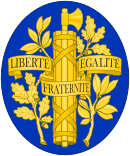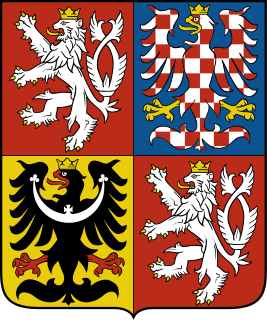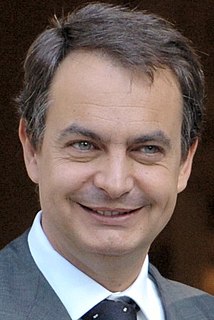 |
|---|
Cantonal elections to elect half the membership of the general councils of France's 100 departments were held on 20 and 27 March 2011.
 |
|---|
Cantonal elections to elect half the membership of the general councils of France's 100 departments were held on 20 and 27 March 2011.
The cantonal elections use a two-round system similar to that employed in the country's legislative elections.
French cantonal elections are usually paired with another election; for example, they were paired with the regional elections in 1998, the municipal elections in 2001, the regional elections in 2004, and the municipal elections in 2008. The 2011 elections were the first cantonal elections since 1992 not to be paired with another election.
Since cantonal councillors are electors for the senatorial elections, and considering that the forces in the Senate are, as of March 2011 almost balanced, the results of this election could play a role in the September 2011 senatorial elections.
The poll below was conducted only in cantons subject to renewal.
| Polling firm | Fieldwork date | Sample size | Abs. | EXG | FG | PS/ PRG | DVG | EELV/ ECO | MoDem | UMP/ NC | DVD | FN | DIV |
|---|---|---|---|---|---|---|---|---|---|---|---|---|---|
| 2011 election | 20 March 2011 | – | 55.68% | 0.58% | 8.92% | 26.43% | 5.41% | 8.59% | 1.22% | 22.43% | 9.32% | 15.06% | 2.03% |
| Harris Interactive | 12–13 Mar 2011 | 1,240 | – | 1% | 10% | 32% | 9% | 2% | 28% | 15% | 3% | ||

| Party | First round | Second round | Total seats | |||||
|---|---|---|---|---|---|---|---|---|
| Votes | % | Seats | Votes | % | Seats | |||
| Socialist Party (Parti socialiste) | 2,284,967 | 24.94 | 150 | 2,802,094 | 35.43 | 670 | 820 | |
| Europe Écologie – Les Verts | 752,992 | 8.22 | 0 | 216,144 | 2.73 | 27 | 27 | |
| Communist Party (Parti communiste français) | 724,911 | 7.91 | 19 | 381,096 | 4.82 | 97 | 116 | |
| Miscellaneous Left (Divers gauche) | 495,822 | 5.41 | 57 | 437,823 | 5.54 | 137 | 194 | |
| Left Radical Party (Parti radical de gauche) | 135,958 | 1.48 | 17 | 119,967 | 1.51 | 34 | 51 | |
| Left Party (Parti de gauche) | 92,386 | 1.01 | 1 | 16,095 | 0.20 | 4 | 5 | |
| Total Parliamentary Left | 4,487,036 | 48.97 | 244 | 3,972,949 | 50.23 | 968 | 1,212 | |
| Union for a Popular Movement (Union pour un mouvement populaire) | 1,554,744 | 16.97 | 92 | 1,581,756 | 20.00 | 277 | 369 | |
| Miscellaneous Right (Divers droite) | 853,892 | 9.32 | 77 | 744,170 | 9.41 | 187 | 264 | |
| Presidential Majority-New Centre (Majorité-Nouveau Centre) | 293,543 | 3.20 | 16 | 289,328 | 3.66 | 42 | 58 | |
| Presidential Majority (Majorité) | 206,488 | 2.25 | 21 | 197,085 | 2.49 | 41 | 62 | |
| Total "Presidential Majority" | 2,908,667 | 31.74 | 206 | 2,812,339 | 35.56 | 547 | 753 | |
| National Front (Front national) | 1,379,902 | 15.06 | 0 | 915,504 | 11.57 | 2 | 2 | |
| Others (Autres) | 123,543 | 1.35 | 6 | 95,251 | 1.20 | 28 | 34 | |
| Democratic Movement (Mouvement démocrate) | 111,887 | 1.22 | 2 | 74,224 | 0.94 | 14 | 16 | |
| Other Far-left (Extrême gauche) | 53,316 | 0.58 | 0 | 273 | 0.00 | 0 | 0 | |
| Regionalists and separatists | 48,468 | 0.53 | 2 | 18,280 | 0.23 | 3 | 5 | |
| Other ecologists | 34,112 | 0.37 | 0 | 16,074 | 0.20 | 2 | 2 | |
| Other far-right (Extrême droite) | 13,673 | 0.15 | 0 | 4,932 | 0.06 | 1 | 1 | |
| Totals | 9,160,604 | 100.00 | 460 | 7,909,826 | 100.00 | 1,566 | 2,026 | |
| Turnout | 9,439,097 | 44.32 | 8 513 399 | 44.77 | ||||
Abstention: 55.68%; invalid ballots; 2.95%

Chile holds nationwide presidential, parliamentary, regional and municipal elections.

France is a unitary semi-presidential republic with a bicameral legislature. Public officials in the legislative and executive branches are either elected by the citizens or appointed by elected officials. Referendums may also be called to consult the French citizenry directly on a particular question, especially one which concerns amendment to the Constitution.

Elections in Jersey take place for the States Assembly and at parish-level. Various parties have been formed over the years in Jersey, but few candidates stand for election affiliated to any political party. All elections in Jersey use the first-past-the-post voting system. In 2008, the voting age was reduced to 16 years.

All elections in the Czech Republic are based on the principle of universal suffrage. Any adult citizen who is at least 18 years old can vote, except those who have been stripped of their legal capacities by a court, usually on the basis of mental illness. Elected representatives are elected directly by the citizens without any intermediaries. Election laws are not part of the constitution, but – unlike regular laws – they cannot be changed without the consensus of both houses of the Parliament. The Czech Republic uses a two-round plurality voting system for the presidential and Senate elections and an open party-list proportional representation system for all other elections. The proportional representation system uses the D'Hondt method for allocating seats.

Parliamentary elections were held in Hungary on 9 April 2006, with a second round of voting in 110 of the 176 single-member constituencies on 23 April. The Hungarian Socialist Party (MSZP) emerged as the largest party in the National Assembly with 186 of the 386 seats, and continued the coalition government with the Alliance of Free Democrats (SZDSZ). It marked the first time a government had been re-elected since the end of Communist rule. To date, this is the most recent national election in Hungary not won by Fidesz-KDNP, and the last in which the victorious party did not win a two-thirds supermajority in parliament.
Voting in Switzerland is the process by which Swiss citizens make decisions about governance and elect officials. The history of voting rights in Switzerland mirrors the complexity of the nation itself. The polling stations are opened on Saturdays and Sunday mornings but most people vote by post in advance. At noon on Sunday, voting ends and the results are usually known during the afternoon.

Dominique Voynet is a French politician who is a member of Europe Écologie–The Greens. She is the former mayor of Montreuil and was a French senator for the département of Seine-Saint-Denis.

The Belgian provincial, municipal and district elections of 2006 took place on Sunday 8 October 2006. The electors have elected the municipal councillors of 589 cities and towns as well as the ten provincial councils. The voters in the town of Antwerp have also been able to vote for the city's district councils. In seven Flemish municipalities with a special language statute and in the Walloon municipality of Comines-Warneton the aldermen and the members of the OCMW/CPAS council have also been directly elected.

Cantonal elections to elect half the membership of the general councils of France's 100 departments were held on 21 and 28 March 2004. These elections coincided with the left's landslide in the regional elections held at the same time and also resulted in strong performances by the Socialist Party (PS) and its allies on the left, leaving the Socialists in control of a majority of departments.

Cantonal elections to elect half the membership of the general councils of France's 100 departments were held on 11 and 18 March 2001. While the left did poorly in the municipal elections held on the same dates, it emerged as the overall winner in the cantonal elections, gaining control of six departments and losing that of just one.

Cantonal elections to elect half the membership of the general councils of France's 100 departments were held on 9 and 16 March 2008. These elections coincided with the municipal elections, in which the left did well.

Louis Aliot is a French politician, a lawyer by profession, and the vice president of the National Rally since 16 January 2011. A member of the FN Executive Office, Executive Committee and Central Committee, Aliot has been a regional councillor since 1998 and a municipal councillor of Perpignan (2008–2009). Louis Aliot has been the mayor of Perpignan since 3 July 2020.

The 2011 Spanish local elections were held on Sunday, 22 May 2011, to elect all 68,230 councillors in the 8,116 municipalities of Spain and all 1,040 seats in 38 provincial deputations. The elections were held simultaneously with regional elections in thirteen autonomous communities, as well as local elections in the three foral deputations of the Basque Country and the eleven island councils in the Balearic and Canary Islands.

Europe Ecology – The Greens is a centre-left to left-wing green political party in France. The party is a member of the European Green Party. The party was formed on 13 November 2010 from the merger of The Greens and Europe Ecology.

Departmental elections to elect the membership of the Departmental Councils of France's 100 departments were held on 22 and 29 March 2015. In 2015 for the first time, the term "departmental elections" replaced "cantonal elections", and the term "Departmental Council" replaced "General Council".

The 1995 Spanish local elections were held on Sunday, 28 May 1995, to elect all 65,869 councillors in the 8,067 municipalities of Spain and all 1,034 seats in 38 provincial deputations. The elections were held simultaneously with regional elections in thirteen autonomous communities, as well as local elections in the three foral deputations of the Basque Country and the ten island councils in the Balearic and Canary Islands.

The 1999 Spanish local elections were held on Sunday, 13 June 1999, to elect all 65,201 councillors in the 8,104 municipalities of Spain and all 1,034 seats in 38 provincial deputations. The elections were held simultaneously with regional elections in thirteen autonomous communities, as well as local elections in the three foral deputations of the Basque Country, the ten island councils in the Balearic and Canary Islands and the 1999 European Parliament election.

The 2003 Spanish local elections were held on Sunday, 25 May 2003, to elect all 65,510 councillors in the 8,108 municipalities of Spain and all 1,036 seats in 38 provincial deputations. The elections were held simultaneously with regional elections in thirteen autonomous communities, as well as local elections in the three foral deputations of the Basque Country and the ten island councils in the Balearic and Canary Islands.

Senatorial elections have been held on 24 September 2017 to renew 170 of 348 seats in the Senate of the French Fifth Republic.
The 2020 French municipal elections were held from 15 March to 28 June to renew the municipal councils of the approximately 35,000 French communes. The first round took place on 15 March and the second round was postponed to 28 June due to the COVID-19 pandemic.